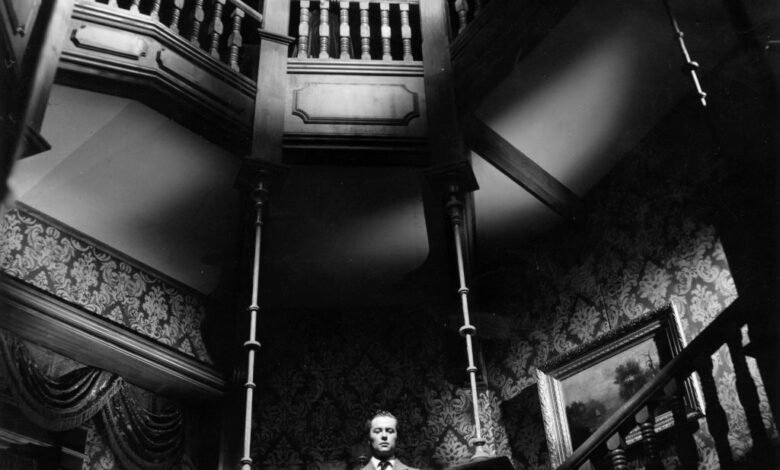Amazon-Backed AI Startup Creates Orson Welles Fan Fiction

▼ Summary
– Fable, an AI startup, announced plans to recreate the lost 43 minutes of Orson Welles’ “The Magnificent Ambersons” using a new AI model for generating long narratives.
– The company has not obtained the rights to the film, making the project a tech demo unlikely to be released publicly.
– Welles’ estate criticized the project as a publicity stunt and expressed frustration over not being consulted, despite being open to AI technology in other contexts.
– The recreation will involve a hybrid approach using AI and traditional filmmaking, including reshooting scenes with contemporary actors and digitally swapping faces to mimic the original cast.
– Despite the filmmakers’ intentions to honor Welles’ vision, the final product will not authentically represent his original work, which remains lost forever.
An AI startup with backing from Amazon’s Alexa Fund is making waves with an unexpected project: using generative technology to reconstruct the lost 43 minutes of Orson Welles’ 1942 film, The Magnificent Ambersons. The company, Fable, is positioning itself as a pioneer in AI-driven entertainment, though this particular endeavor raises both technical and ethical questions.
Fable has developed a platform that enables users to generate animated content through AI prompts. While it currently operates with its own intellectual property, the firm has broader ambitions to collaborate with established Hollywood franchises. In fact, the technology has already been used to produce unofficial South Park episodes, demonstrating its narrative capabilities.
Now, the startup is introducing a new AI model designed to produce lengthy and intricate storylines. Over the next two years, filmmaker Brian Rose, who has dedicated half a decade to digitally restoring Welles’ original cut, intends to employ this model to recreate the missing scenes from The Magnificent Ambersons. Notably, Fable has not secured the rights to the film, meaning this effort will likely remain a tech demonstration rather than a publicly released work.
Why choose this particular film? To those less familiar with cinema history, The Magnificent Ambersons may seem an obscure candidate for digital revival. Even among classic film enthusiasts, it lives in the shadow of Welles’ more famous debut, Citizen Kane. Yet Ambersons is remembered as a compromised masterpiece, one that was heavily edited by the studio against the director’s wishes, stripping away its intended ending and much of its emotional depth.
That sense of artistic loss is precisely what appears to have drawn Fable and Rose to the project. Still, it’s important to recognize that the film’s enduring significance is inseparable from Welles’ involvement, both as a testament to his genius and as a symbol of studio interference that altered the course of his career.
The Welles estate has not been consulted, a point that has drawn sharp criticism. David Reeder, representing Welles’ daughter Beatrice, described the initiative as “an attempt to generate publicity on the back of Welles’ creative genius” and dismissed it as a “purely mechanical exercise.” Interestingly, Reeder’s primary objection seems to be the lack of communication rather than the use of AI itself, the estate has, in fact, developed a voice model of Welles for commercial voice-over work.
Even if permissions were granted, however, many would remain skeptical. There’s something fundamentally different about previous attempts to complete Welles’ films using his own footage, compared to generating entirely new scenes with AI. Fable describes its method as a hybrid approach, blending artificial intelligence with live-action reshoots using contemporary actors, whose faces would later be replaced with digital recreations of the original cast.
While Rose’s motivations appear sincere, he has spoken passionately about restoring lost cinematic artistry, the result would inevitably be an interpretation, not a resurrection. No algorithm can replicate Welles’ directorial intuition, his interaction with actors, or the historical context in which the film was made.
What Fable proposes may be technologically impressive, but it cannot recover what was lost. The original Magnificent Ambersons, as Welles envisioned it, remains gone. Unless the missing footage is someday discovered, this digital reimagining will be just that, a simulation, not a salvation.
(Source: TechCrunch)